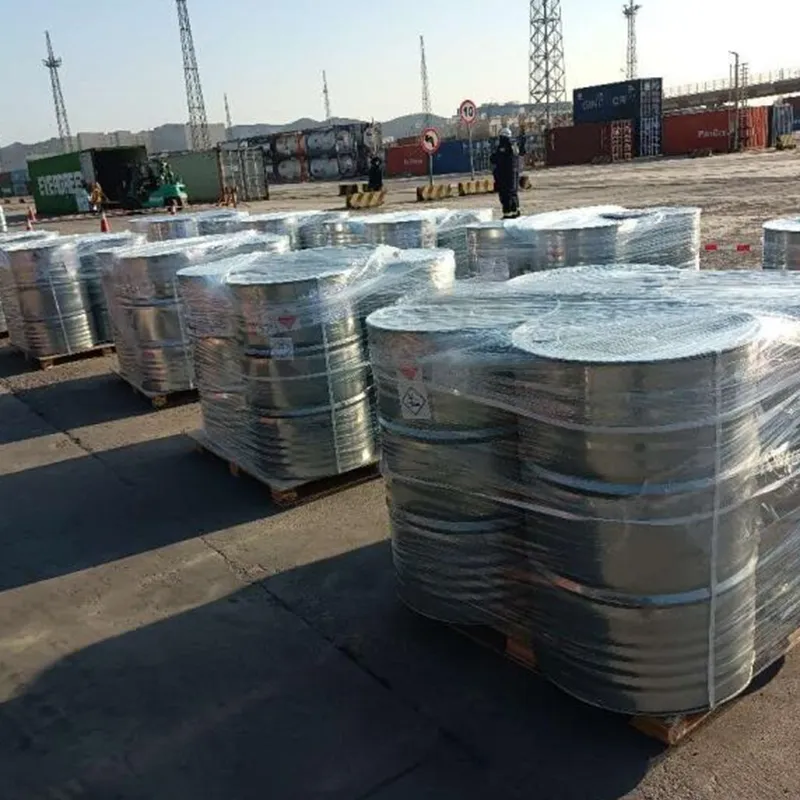
Current Pricing Trends for Sodium Dichloroisocyanurate in the Market Today
The Price Dynamics of Sodium Dichloroisocyanurate Trends, Factors, and Applications
Sodium dichloroisocyanurate (NaDCC) has emerged as a critical compound in various industries due to its potent disinfectant properties. Commonly used in water treatment, swimming pool sanitation, and surface disinfection, its effectiveness in killing a wide range of pathogens, including bacteria, viruses, and fungi, makes it a staple in hygiene management. However, the price of sodium dichloroisocyanurate has gone through significant fluctuations based on several underlying factors.
Understanding Sodium Dichloroisocyanurate
Sodium dichloroisocyanurate is a white crystalline powder that is highly soluble in water. It is a stable compound that releases chlorine when it dissolves, providing a reliable source of disinfectant. Due to its versatility, it is employed in both industrial and residential settings, making it highly sought after, especially in times of public health crises.
Price Trends and Market Dynamics
Over the last few years, the price of sodium dichloroisocyanurate has experienced volatility. Prices typically range from $2 to $10 per kilogram, depending on several factors, including production methods, raw material costs, and market demand. During the COVID-19 pandemic, for instance, the global demand for disinfectants surged, leading to an exponential increase in the price of sodium dichloroisocyanurate. Many suppliers struggled to keep up with the heightened demand, resulting in inflated prices and constrained supplies.
Factors Influencing Price Fluctuations
1. Raw Material Costs The primary ingredients of sodium dichloroisocyanurate are cyanuric acid and sodium hypochlorite, both of which are subject to price changes based on market conditions. Fluctuations in the prices of these raw materials directly impact the manufacturing costs, leading to variations in the final price of sodium dichloroisocyanurate.
sodium dichloroisocyanurate price

2. Production Capacity The availability and capacity of manufacturers to produce sodium dichloroisocyanurate are crucial. Factors such as production efficiency, technological advancements, and plant shutdowns for maintenance can influence supply levels. Inadequate production capacity can lead to shortages, driving prices up.
3. Regulatory Changes Regulations concerning chemical manufacturing and safety can also affect prices. Stringent regulations may require manufacturers to invest in more expensive production processes, which can be passed on to consumers in the form of higher prices.
4. Market Competition The competitive landscape among manufacturers and suppliers plays a vital role in price determination. A higher number of players in the market typically leads to more competitive pricing. Conversely, market monopolies or limited suppliers can drive prices higher due to reduced competition.
5. Global Economic Conditions Worldwide events, such as trade agreements, tariffs, and global economic downturns, can have a ripple effect on chemical prices. For example, geopolitical tensions can disrupt supply chains, leading to increased shipping and sourcing costs.
Applications and Future Outlook
Looking ahead, the outlook for sodium dichloroisocyanurate remains promising. With an increasing focus on sanitation and hygiene, particularly in the wake of the COVID-19 pandemic, the demand for effective disinfectants is projected to grow. Additionally, as industries adapt to new health standards, the need for reliable sanitation solutions will create sustained demand for sodium dichloroisocyanurate.
In conclusion, while the price of sodium dichloroisocyanurate is influenced by a myriad of factors, its critical role in disinfection, particularly in high-demand periods, ensures a steady market presence. Stakeholders in the industry must remain vigilant about market conditions, raw material pricing, and regulatory frameworks to navigate the complexities of pricing effectively. As we progress into a future where hygiene and health continue to be prioritized, sodium dichloroisocyanurate will likely maintain its position as an indispensable asset across various sectors.
-
Buy High-Quality Trichloroisocyanuric Acid for Sale | TCCA 90% SupplierNewsAug.30,2025
-
Pure Sodium Dichloroisocyanurate Dihydrate | Powerful DisinfectantNewsAug.29,2025
-
Industrial Chemicals: Quality & Purity for Every IndustryNewsAug.28,2025
-
Nitrile Rubber Honoring Strict Production StandardsNewsAug.22,2025
-
Aspartame Ingredients Honoring Food Safety ValuesNewsAug.22,2025
-
Fertilizer for Balanced Plant NutritionNewsAug.22,2025
-
Cyanide Gold Processing with High Purity AdditivesNewsAug.22,2025
Hebei Tenger Chemical Technology Co., Ltd. focuses on the chemical industry and is committed to the export service of chemical raw materials.
-

view more DiethanolisopropanolamineIn the ever-growing field of chemical solutions, diethanolisopropanolamine (DEIPA) stands out as a versatile and important compound. Due to its unique chemical structure and properties, DEIPA is of interest to various industries including construction, personal care, and agriculture. -

view more TriisopropanolamineTriisopropanolamine (TIPA) alkanol amine substance, is a kind of alcohol amine compound with amino and alcohol hydroxyl, and because of its molecules contains both amino and hydroxyl. -

view more Tetramethyl Thiuram DisulfideTetramethyl thiuram disulfide, also known as TMTD, is a white to light-yellow powder with a distinct sulfur-like odor. It is soluble in organic solvents such as benzene, acetone, and ethyl acetate, making it highly versatile for use in different formulations. TMTD is known for its excellent vulcanization acceleration properties, which makes it a key ingredient in the production of rubber products. Additionally, it acts as an effective fungicide and bactericide, making it valuable in agricultural applications. Its high purity and stability ensure consistent performance, making it a preferred choice for manufacturers across various industries.





